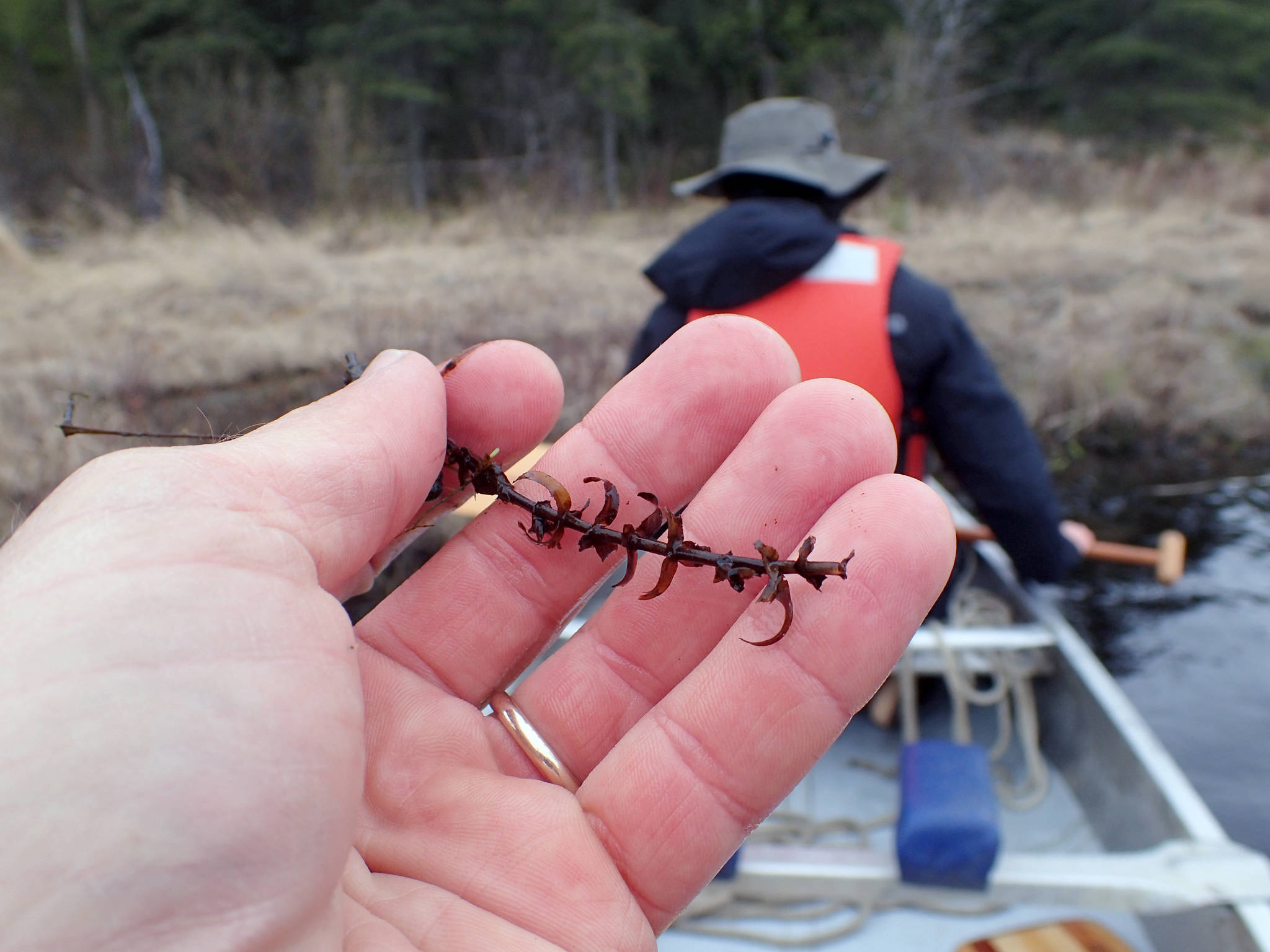The Alaska Department of Fish and Game would like to remind Alaska’s aquatic recreators of their role in stopping the spread of invasive species.
“Invasive species” refers to plants, animals or pathogens that are not native to the body of water they are put into. People boating and angling on the state’s lakes, rivers and streams run the risk of introducing or spreading “aquatic hitchhikers,” which include northern pike, signal crayfish and elodea — a plant.
“When introduced to new water bodies, aquatic invasive species can disrupt and destroy native fish habitats,” reads a release from ADF&G. “Some aquatic invasive species don’t have natural predators in their new home which means they can devastate native species.”
People can be proactive about stopping the spread of invasive species, ADF&G says, by clearing, draining and drying their boat, floatplane and gear before leaving a water access area.
“It’s important to remember that you can unintentionally move aquatic invasive species to new water bodies without ever leaving the state,” ADF&G Invasive Species Program Coordinator Tammy Davis is quoted as saying in the release. “For example, if you’ve been boating or fishing in a lake infested with an aquatic invasive plant like Elodea, it’s critical to thoroughly clean, drain and dry everything before you leave the boat launch, so you don’t take plant fragments to the next lake you visit.”
Efforts to eliminate northern pike populations have been underway for years on the Kenai Peninsula. The fish was illegally introduced to Southcentral Alaska in the 1950s and pose a specific threat to rainbow trout and juvenile salmon.
“[In] nearly all water bodies where pike have been long established on the Kenai Peninsula, native fish populations have declined or have been completely eliminated,” Rob Massengill, with ADF&G, told the Clarion earlier this year.
According to the Alaska Department of Natural Resources, elodea is the first invasive freshwater aquatic plant known in Alaska. The plant, the department says, displaces native flora and fauna, degrades fish habitat, decreases flow and increases sedimentation in freshwater habitats and reduces the value of waterfront property.
The Sun’ak Tribe of Kodiak has led efforts to study signal crayfish and successfully captured and removed 1,299 signal crayfish from the Buskin Watershed during the 2018 field season. ADF&G describes crayfish as looking similar to small lobsters, noting that they have a white oval patch on their claws from which their name is derived.
Other aquatic invasive species that have not been reported in Alaska waters yet include the New Zealand mud snail and the European green crab. Invasive species can also be introduced when aquatic pets are released into the wild. For example, it is illegal to dump the contents of an aquarium into a nearby lake, creek or storm drain, according to ADF&G. Aquarium owners can reach out to ADF&G’s invasive species program and to their local pet shop if they are unsure of how to surrender unwanted pets.
“Dumping your goldfish may seem harmless, but they can negatively impact the ecosystem,” the release says. “Releasing unwanted aquatic pets into the wild endangers native fish and aquatic habitats, and it’s inhumane.”
Recreators can also report plants and animals that look like they do not belong, or that are known to be not native, by calling the state’s Invasive Species Hotline a 1-877-INVASIV or by visiting ADF&G’s website at adfg.alaska.gov.
Reach reporter Ashlyn O’Hara at ashlyn.ohara@peninsulaclarion.com.

